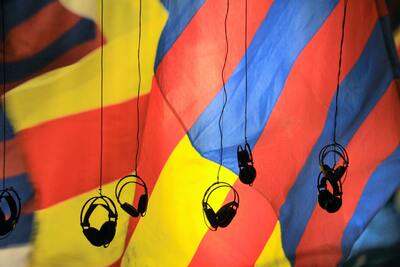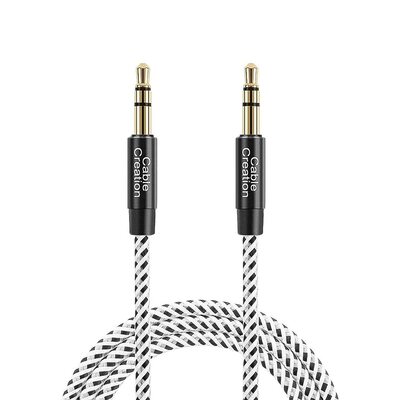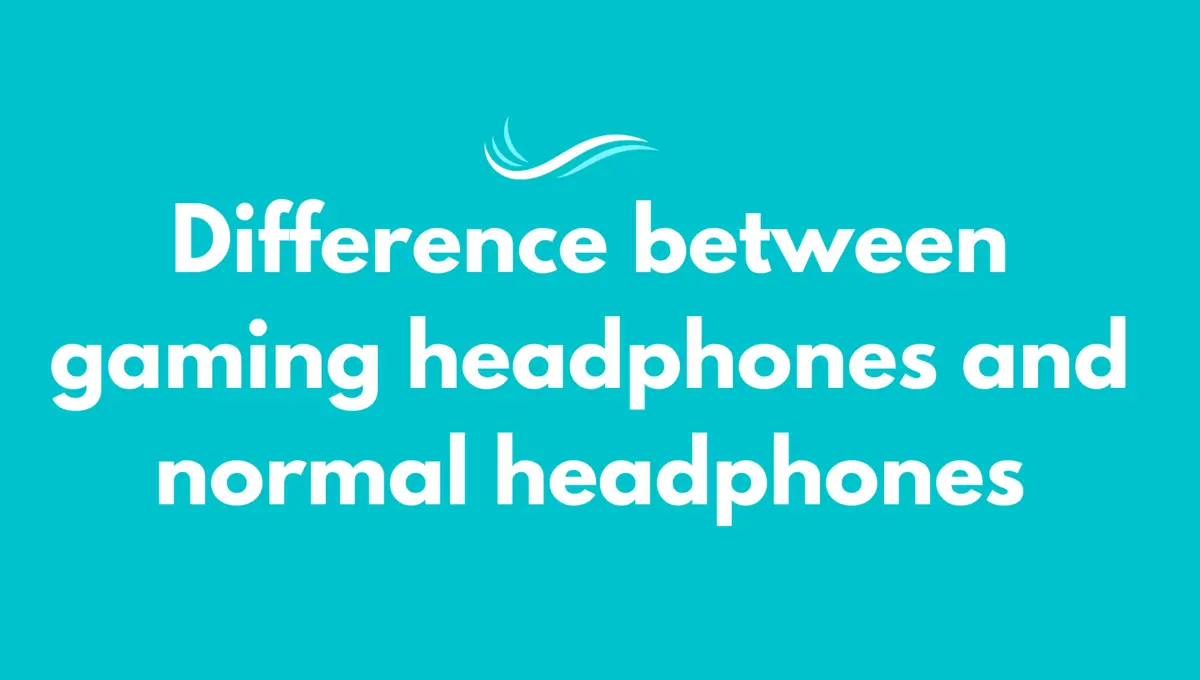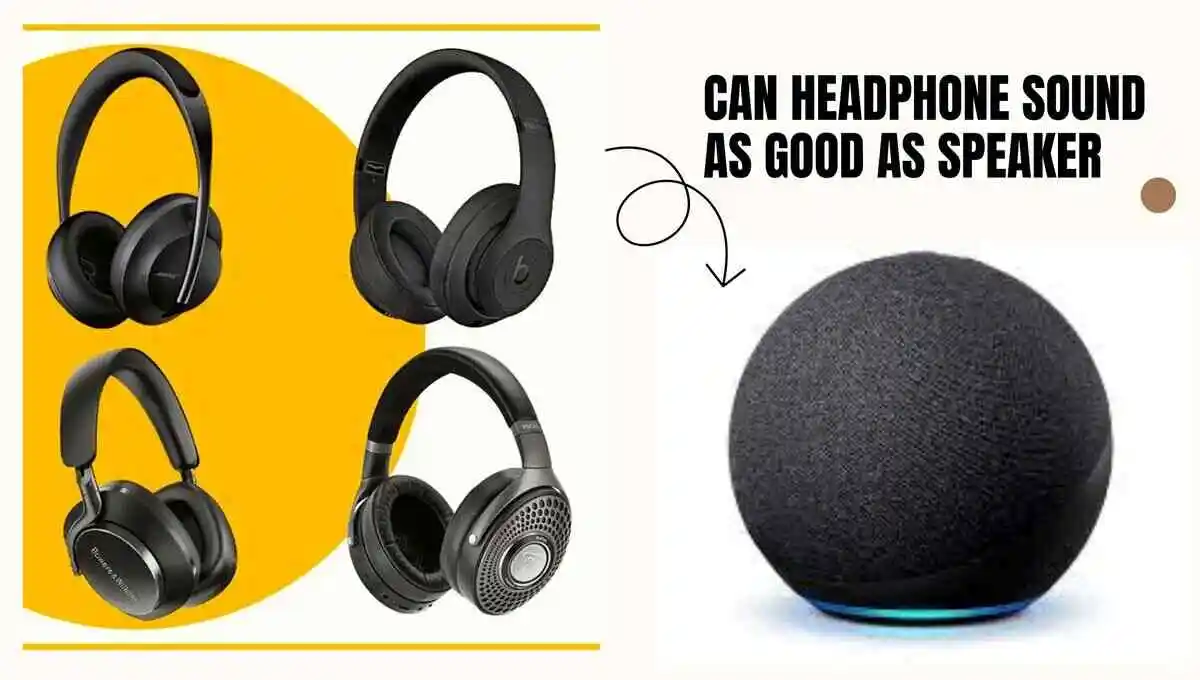Headphone cables are an important component of any audio setup, as they connect your headphones to your source device and carry the audio signal from one to the other. While many people assume that all headphone cables are created equal, there are actually a wide variety of cables available, each with their own unique features and benefits.
Well, in this article, we’ll be looking at do headphone cables make a difference, whether you should buy them, and what affects the sound quality of headphones.
What Affects the sound quality of headphones?
There are several factors that can affect the sound quality of headphones. Some of these include:
-
Driver size and quality: The driver is the component of the headphone that converts electrical signals into sound waves.
The larger the driver, the more air it can move and the better the sound quality. Additionally, high-quality drivers will produce more accurate and detailed sound.
-
Frequency response: This refers to the range of frequencies that the headphones are capable of producing. A wider frequency response will allow for more detailed and nuanced sound.
-
Impedance: Impedance refers to the amount of resistance that the headphones provide to the electrical signal from the audio source.
Headphones with higher impedance may require more power to drive them, but they can also produce more accurate sound.
-
Noise isolation/cancellation: Headphones that are designed to block out external noise can improve the sound quality by reducing interference from ambient sounds.
-
Cable quality: The cable that connects the headphones to the audio source can also affect the sound quality. Higher-quality cables with better shielding can reduce interference and improve sound clarity.
-
Audio source: Finally, the quality of the audio source (such as a music player or computer) can also affect the sound quality of headphones. High-quality audio files and equipment can produce better sound, while low-quality sources can reduce the potential of headphones.
-
Build quality: The materials used to construct the headphones, as well as the design and construction quality, can affect the sound quality by reducing unwanted vibrations and distortions.
For example, metal has a higher acoustic density than plastic, making metal-made headphones sound better because they produce louder sounds with less distortion. Unfortunately, headphones with a high acoustic density also tend to be more expensive.
Do Headphone Cables Make a Difference?
Yes, headphone Cables Make a difference to the sound quality which is normally immeasurable for music but as far as gaming is concerned this effect can easily be judged.
The quality of the cable can impact the transmission of the audio signal from the source to the headphones. Poor-quality cables can introduce interference, noise, and distortion into the audio signal, which can degrade sound quality.
Factors affecting the quality of cable:
The factors of a headphone cable that can affect sound quality include:
- Cable length: Longer cables can cause more resistance, signal loss, and interference, which can impact the sound quality. Therefore, shorter cables are generally preferred for better sound quality.
- Cable thickness: Thicker cables can reduce resistance and interference, resulting in better sound quality. However, excessively thick cables can also be unwieldy and uncomfortable to use.
- Cable material: The material used to make the cable can impact the sound quality. Higher-quality materials, such as copper or silver, can provide better conductivity and reduce resistance, leading to improved sound quality.
- Cable construction: The construction of the cable can impact the sound quality as well. For example, cables that use braided strands or twisted pair construction can help reduce interference and improve sound quality.
- Connectors: The type and quality of connectors used on the cable can impact the sound quality. High-quality connectors made of materials such as gold or silver can improve conductivity and reduce interference, leading to better sound quality.
- Shielding: Shielding can help protect the cable from external interference, which can impact the sound quality. Shielded cables are less susceptible to interference and can provide better sound quality as a result.
Overall, a high-quality headphone cable should be designed to minimize interference and resistance to provide the best possible sound quality.

Can you hear the difference between different headphone cables?
The differences between headphone cables can be subtle and difficult to detect. The human ear is capable of perceiving small changes in sound, but they must be significant enough to be noticeable.
However, the differences between high-quality cables may not always be audible.
Other factors such as headphone and source material quality, and listening environment can also impact perception. When considering investing in a high-quality headphone cable, it’s important to evaluate your own needs and preferences.
How to choose the right headphone cable?
When choosing the right headphone cable, there are a few key factors to consider. Here are some main points to keep in mind:
- Consider the factors that affect performance, such as cable length, thickness, material, and construction, as well as the quality of the connectors and shielding.
- Evaluate your needs and preferences, such as the type of music you listen to, the equipment you’re using, and the listening environment.
- Research and compare different options, such as reading reviews and asking for recommendations from knowledgeable sources.
- Look for cables that are compatible with your headphones and other audio equipment.
- Consider the build quality and durability of the cable, as well as its aesthetic appeal if that’s important to you.
- Keep in mind that more expensive doesn’t always mean better performance, and that the differences between cables may be subtle and difficult to detect.
- When in doubt, consider trying out different cables to see if you can hear a noticeable difference in sound quality.
Do Expensive Audio Cables Make a Difference?
Some people who really love good sound from their headphones argue about whether expensive cables make a big difference. Some say fancy cables with special materials and how they’re made can make the sound better. Others say there’s not much of a difference between different cables.
Here are some things that can affect how good a headphone cable is:
Materials: The stuff the cables are made from, like copper, silver, or gold, can change how the sound sounds. Copper can make it sound warm and rich, while silver can make it faster and tighter.
Some people say having special coatings on the connectors can help too because if the connectors get all yucky, it can mess up the sound.
How it’s Made: The way the cable is put together can also change how it sounds. Things like how thick the stuff around the wires is, and how the wires are twisted or braided, can change how the music sounds. Also, how strong and easy to use the cable is matters.
Expecting it to Sound Good: Sometimes, if you think a cable will make the sound better because it looks nice or matches your headphones, your brain might trick you into hearing it as better, even if it’s not really.
But for most people, the differences in sound quality from different cables are really small, and you might not even notice them.
When you’re picking a cable, it’s often more important to think about how strong it is, how easy it is to use, and how it looks, instead of worrying too much about making the sound perfect.
Cables used in high-end headphones?
High-end headphones can use a variety of cables, but some of the most common types include:
- Oxygen-Free Copper (OFC): OFC cables are made of copper that has been purified to remove impurities such as oxygen, which can cause resistance and interfere with the signal. OFC cables are known for their high conductivity and low resistance, which can improve the clarity and accuracy of the sound.
- Silver-Plated Copper (SPC): SPC cables are made of copper that has been coated with a layer of silver. The silver layer can improve conductivity and reduce resistance, which can improve the sound quality. SPC cables are often used in high-end headphones and audio equipment.
- Silver (Ag): Some high-end headphones use cables made entirely of silver, which is an excellent conductor of electricity. Silver cables can be expensive but can offer excellent sound quality.
- Litz Wire: Litz wire is a type of cable that is made up of multiple strands of insulated wire that are braided together. The multiple strands can help reduce resistance and interference, which can improve the clarity of the sound.
- Custom Cables: Some high-end headphone manufacturers may offer custom cables as an option, which can be made of higher-quality materials or feature unique designs to improve sound quality.

Benefits of Using high-end cables:
- High-quality headphone cables can potentially improve sound quality, providing a more accurate and detailed audio experience.
- They may offer greater clarity, a wider soundstage, improved bass response, and reduced distortion.
- High-quality cables are often made with better materials and construction techniques, making them less prone to breaking or wearing out over time.
- This can save you money in the long run by reducing the need to replace cables frequently.
- Some high-quality cables can also provide better shielding, reducing interference and noise.
- Some high-quality cables may also offer better ergonomics, such as being more flexible and easier to manage. This can make them more comfortable to use and reduce cable noise.
Types of Headphone Cables:
One of the most common questions is whether headphone cables make a difference in sound quality. The answer to this question is both complicated and subjective.
General Types: Analog & Digital cables:
There are two types of headphone cables- analog and digital.
Analog Cables:
- Construction: Analog cables are relatively simple in their construction, typically consisting of a pair of wires.
- Signal Type: They transmit electrical signals.
- Sound Quality: Analog cables tend to produce warm and natural sound quality. However, they may be more susceptible to interference and noise, which can affect audio quality.
- Cost: Analog cables are often less expensive than digital cables due to their simpler construction.
- Best for: They are best suited for connecting headphones to analog audio equipment such as amplifiers, receivers, or digital-to-analog converters (DACs).
Digital Cables:
- Construction: Digital cables are more complex, often including additional components like a clock to manage digital data transmission.
- Signal Type: They transmit digital signals.
- Sound Quality: Digital cables offer high-quality and high-resolution sound. They are less prone to interference and noise, ensuring a clean audio signal.
- Cost: Digital cables are typically more expensive than analog cables due to their more intricate construction.
- Best for: These cables are ideal for connecting headphones to digital audio sources like computers, smartphones, or other devices that use digital signals. They excel in delivering pristine audio quality in digital formats.

How to install Custom headphone cables?
Here are the general steps for installing custom headphone cables:
Choose the right cable: Select a cable that is compatible with your headphones and meets your needs in terms of sound quality, durability, and other factors.
Prepare the cable: Strip the insulation off the ends of the cable to expose the wires. If the cable has shielding, make sure it is grounded properly.
Remove the old cable: If your headphones have a detachable cable, simply unplug the old cable from the headphone jack. If the cable is permanently attached, you will need to remove it from the headphones by opening up the ear cups.
Solder the new cable: Connect the wires of the new cable to the appropriate points on the headphone driver using a soldering iron. Make sure to follow the wiring diagram for your headphones and double-check your connections before applying heat.
Test the connection: Once you have soldered the new cable, test the connection by plugging the headphones into an audio source and playing some music. Check to make sure that both ear cups are working and that the sound quality is good.
Secure the cable: Once you are satisfied with the connection, use heat shrink tubing or electrical tape to secure the cable to the headphone driver and prevent it from coming loose.
Reassemble the headphones: If you had to open up the ear cups, reassemble them carefully and make sure everything is aligned properly.
It’s important to note that the specific steps for installing custom headphone cables can vary depending on the make and model of your headphones, as well as the type of cable you are using.
If you are not comfortable working with electronics or have limited experience with soldering, it may be best to have a professional installer or technician do the work for you.
Conclusion:
Whether you’re an audiophile or just looking for a more convenient way to listen to your music, headphone cables can make a big difference. “As I experienced”
Following is the Summary of Good cable:
- A thickness is generally better.
- Contains smooth/leathery insulation
- The product should be stiffer and more elastic.
- A little bit of weight and hang
- Strong joints and sleeves
So if you’re ever in doubt about whether or not to buy a new pair of headphones or a new cable, always go with the better option – even if it means shelling out a bit more cash.



![Are Skullcandy Headphones Waterproof [Water-Test]](/uploads/are-skullcany-headphones-water-proof.webp)



